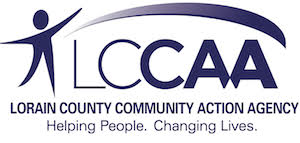
Many Early Speech Concerns Correctable
posted 4/12/21 -- Developing children sometimes acquire skills and abilities at different rates. This includes speech and language skills. Speech therapy is one of the most common referrals from LCCAA Head Start and many other school programs. Most concerns are mild and correctable.Speech Language Pathologist Susan Powers, who contracts with LCCAA Head Start for screenings and therapies, said a child’s speaking or language skills may seem limited for a number of reasons:
- Frequent ear infections can make hearing difficult; once they are cleared, the child is on her way to typical speech development.
- Attention span lengthens as a child grows; expectations should be age appropriate.
- Birth order can matter. The youngest child of four, for example, may not see much need to talk if siblings speak for him.
If the speech issue is cause by a physical (many muscles are used to speak) or neurological issue (transferring information from the brain to the voice), early intervention is critical, Powers said. Children’s brains are “very plastic” from zero to three, she added, meaning they absorb and learn things quickly.
“The earlier you get them in, the better the outcome is going to be,” she said.
Powers added that speech and language development typically follow a child’s age. For example, a one-year-old will speak in one word at a time (“truck”) while a two-year-old will be able to put two words together (“big truck”) and so on. Early words are most often nouns, followed by basic adjectives and finally verbs. Five year olds should be able to speak in complete sentences and be easily understood by most adults.
Other advice for parents who may be concerned about speech includes:
- Read to your child daily.
- Talk in a normal voice with good vocabulary.
- Keep eye contact when talking to your child.
- Be ready to repeat yourself.
- Do not interrupt your child and finish for him.
- Be mindful of background noise, such as leaving the TV on all the time.
- Talk to your child’s teacher if you are concerned. Free evaluations are available in some cases.
For more tips, visit www.asha.org.
